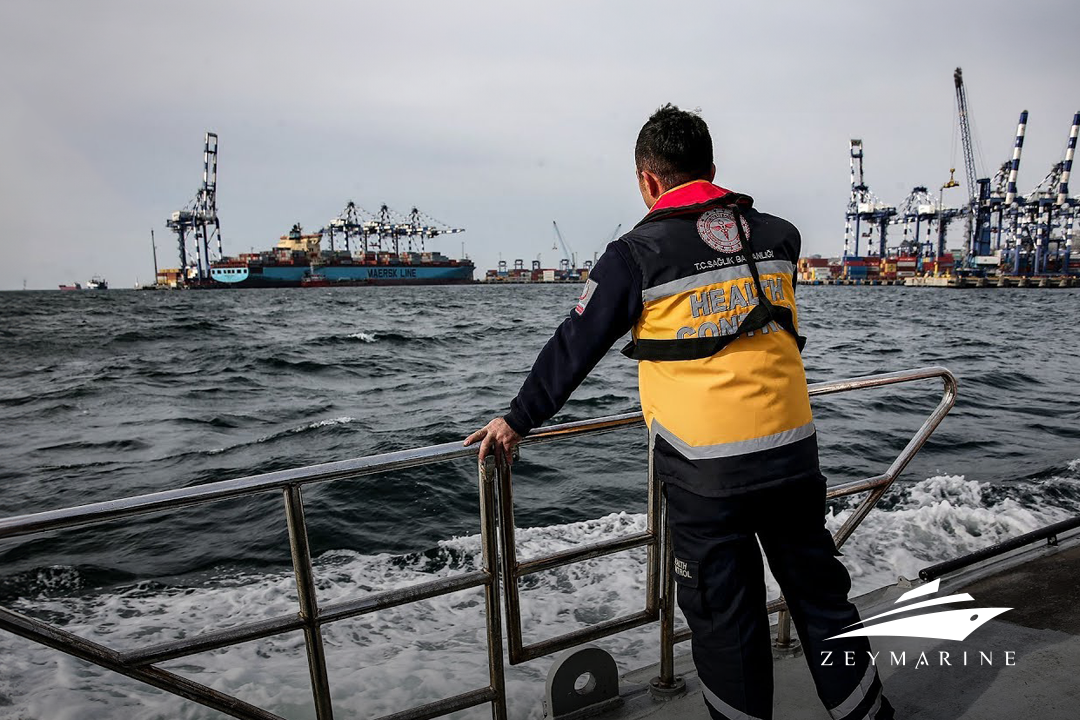Today is the Medical Day in Türkiye.
When Türkiye’s first positive COVID-19 case was made public four years ago, not many people realized that what was about to happen would mark a significant historical turning point. While we recognised that epidemics could spread so rapidly and uncontrollably, we also had entered a long period of economic impact.
Let’s get to know the history of Medical Day and the General Directorate of Health for Borders and Coasts of Turkey, which is in Türkiye to fulfil basic responsibilities such as preventing the entry of infectious and epidemic diseases into the country, conducting health inspections on ships that will transit the straits or dock in ports, and how health inspections are carried out in Turkish waters.
Medical Day in Türkiye
There are days honouring medical science and doctors in different geographies.
In its most universal form, The World Health Organization (WHO) organizes World Health Day, which is celebrated on April 7th every year and is a global health awareness campaign that focuses on a different health issue each year. The theme for World Health Day 2024 is Global Action for Universal Health.
Also, for instance, National Doctor’s Day honours physicians and their contributions to society in the United States, it is observed on March 30th. It is the anniversary of 30 March 1842, the first time general anaesthesia was first used in surgery in the USA.
Similarly, in India, 1 July, the anniversary of the birth (and death) of the famous doctor Bidhan Chandra Roy, is celebrated as “Doctors’ Day”.
In Turkey, Medicine Day has a different connotation though. Since 1976, celebrations have been held not only on 14 March but also during the week including 14 March and this week is accepted as Medical Week.
At the suggestion of Hekimbaşı Mustafa Behçet, the first surgical school was founded on March 14, 1827, during the reign of Mahmut II. The date is recognized as the beginning of modern medical education in Turkey.
History of General Directorate of Health for Borders and Coasts of Türkiye
The establishment of the Directorate is based on preventing the spread of infectious epidemics. In Turkey, organized efforts to combat infectious illnesses began in the 1800s.
A council known as Majlis-i Tahaffuz was originally called by Mahmut II in order to establish quarantine, and it began operations in 1838. This assembly consisted of two councils: the Tahaffuz-ı Ula Assembly (High Quarantine Assembly) and the Tahaffuz-ı Sanı Assembly (High Quarantine Bureau).
The Assembly set up a center in Çanakkale where ships or passengers from the Mediterranean region may get health examinations and have the required procedures completed prior to sailing to Istanbul. The center’s authorities were directed to quarantine all ships, whether they were concessioned or not, that arrived from the Mediterranean. They were also instructed to register every passenger on board the same ship and to advise them that sailing to Istanbul would not be harmful once their quarantine was over and they had received their certificates. An official “Quarantine Directive” was drafted and disseminated across the nation.
In 1923, after the declaration of independence, the Sanitary Control Administration was disbanded and after the Treaty of Lausanne, the “Istanbul Port and Straits Sanitary Directorate” was established in its place. In 1924, the name of this Directorate was changed as “Hudut ve Sevahil Sıhhiyesi Müdüriyeti Umumiyesi” (General Directorate of Health for the Borders and Coasts).
On 20 July 1936, with the Convention on the Straits Regime signed in Montreux, the conditions that the ships passing through the straits, which were among the duties of the General Directorate, would be subject to, were clarified.
Health Procedures in Turkish Ports
“Free Pratique” refers to a health permit that allows a ship to enter a port for any kind of operation. Free Pratique is granted whether ship ıs alongside or before arrival by Coastal Health Supervision Center authorities after checks on the Maritime Health Declaration that the ship’s master provided.
The International Health Regulations (2005) mandate that ship health inspections be conducted with the dual goals of preventing the spread of globally significant public health risks via ships and raising health and hygiene standards on board, as ships serve as seafarers’ living and working quarters.
Health Procedures in the Turkish Straits
The authorization granted for transit via the Turkish Straits is known as transit pratique. Ships entering the Turkish Straits from foreign ports are required to get transit pratique and follow the health control protocol outlined in Article 3 of the Montreux Straits Regime Convention, which was signed on July 20, 1936.







